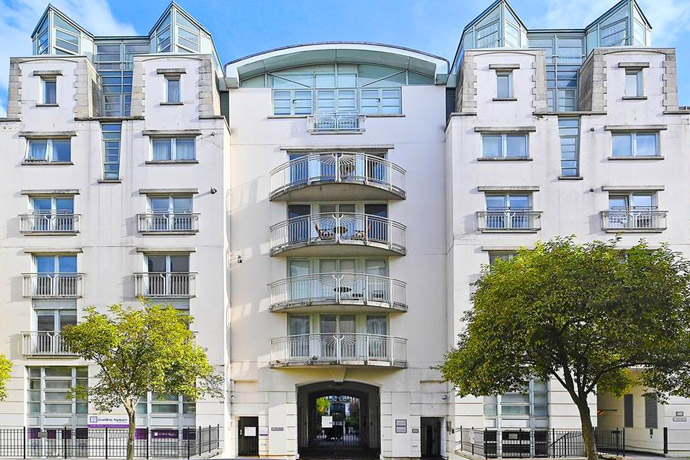
23/02/26
Modernisation project gives prestige residence a lift
020 3637 7968
info@mihproperty.co.uk020 3637 7968

The Renter’s Rights Bill ‘RRB’ (formerly the Renters Reform Bill) is slowly trundling its way through the various stages of debate and approval via the House of Commons, followed by the House of Lords. The proposed changes are set to be inked into Royal Assent in the autumn of 2025, coming into full force in early 2026.
Fundamentally, the Bill is a comprehensive reform aimed at overhauling the Private Rented Sector (PRS) in England. (Business or commercial tenancies remain governed by existing commercial law). It posits some key changes that will bring an end to Assured Shorthold Tenancies (AST) also known as fixed-term tenancies and abolish Section 21 – ‘no-fault’ evictions. This and other clauses will result in stronger tenant protections alongside clearer landlord obligations.
According to a summary by Goodlord, the Government believes this is necessary because:
“While the majority of landlords provide a good service, the [PRS] currently provides the least affordable, poorest quality and most insecure housing of all tenures.”
This sums up the wider view of the property rental market which obviously spans everything from basic housing at the lower end, to highly desirable luxury homes at the top end. All landlords are not equal, not all are unfair or do a bad job, but one bill must fit all, and the RRB is designed to ‘marshal’ the less scrupulous into better practice.
Once the Bill is passed, all existing and new Assured Shorthold Tenancies will immediately become rolling tenancies without a fixed end date.
During the first 12 months of a new tenancy, landlords will not be allowed to move back into their property or attempt to sell it unless they sell to another landlord who will honour the tenancy. Hence, tenants will have a 12-month protected period. Landlords need to be aware that a tenant can still give two months’ notice to terminate during this period.
It is hoped that a single, standardised tenancy model, tenants should benefit from greater legal clarity and reduced uncertainty in their rental arrangements.
In cases where tenants give notice, the property can be re-let more quickly than waiting out a fixed term. The need to find ‘good’ responsible tenants who are in alignment with the landlords’ aims and intentions for their property has never been greater. Communication and transparency will be key. Over time, a standardised tenancy structure could reduce legal ambiguity and make it easier for compliant landlords to manage tenancies fairly and efficiently.
Landlords can no longer evict tenants without cause. Evictions will only be permitted under revised Section 8 grounds with mandatory advance notice given.
Section 8 notices will now include Ground 1 (you, or a family member, want to live in the property) or 1A (you want to sell the property). For these two Grounds a minimum of four months’ notice is required, and the notice can’t end within the first 12 months of the tenancy. Something for landlords to be aware of.
Updated statutory grounds for possession, including new safeguards and clearer procedural requirements on notice. Balancing the tenants need for security, while ensuring landlords can recover their property when reasonable.
Rent may only be increased once every 12 months via a formal Section 13 notice, with at least two months’ notice. Tenants can challenge increases deemed above-market through the First-tier Tribunal.
Landlords or agents must advertise a set asking price and cannot solicit higher offers. Any requirement for advance rent will be limited to a single month.
Discrimination on the basis of having children or being the recipient of benefits is prohibited. Tenants may request permission to keep pets, which landlords must not refuse unreasonably. However, mandatory pet insurance paid by the tenant has recently been struck off the Bill which presents a dilemma for landlords without a clear answer.
The Bill introduces the statutory Decent Homes Standard (DHS) and extends Awaab’s Law to private rentals, compelling landlords to fix health/safety hazards such as mould and emergency leaks, within set timelines .
All private landlords must join a government-approved redress scheme or ombudsman to handle complaints, with powers to enforce decisions.
A centralised PRS database for landlords, tenants, and local authorities will be established, containing compliance data and records of enforcement action. This is to track poor practices and improve overall transparency.
Councils will receive new duties and powers to enforce the Bill’s provisions (e.g., banning orders, and fines up to £7,000 for serious hazards or discriminatory conduct and up to £40,000 for repeat offences).
The Bill isn’t yet signed and sealed, but better to be prepared for the likely outcomes. The RRB will inevitably make life more challenging for Landlords who will need to manage tenancies more proactively and be prepared to document any issues clearly.
If you’re a landlord worried about how to tackle the rental landscape looming on the horizon, MIH Property management can help. We are already up to speed and ready for the changes and can advise on best practice and how best to manage and optimise your portfolio under the new legislation.